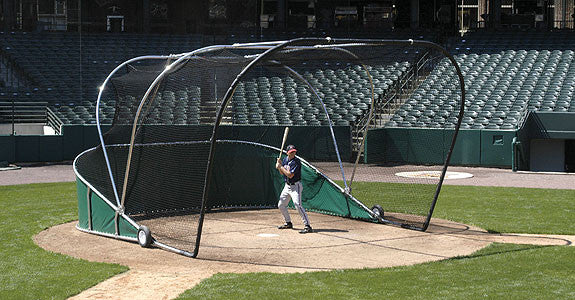Player/Coaches/Parents
If you experience at getting to play BB or SB this summer it has not been good.
BUT please take it on yourself to get ready when the time comes. There is a lot you can do in the backyard with a baseball or tennis ball. Don't use the excuse you DO NOT HAVE a cage, equipment, others to play with do it yourself.
Tennis ball against a wall for fielding, ball on roof and catch the roll off, throw into a blanket, hit off a homemade tee into the blanket, stay busy and think so you are ready when the time comes to play.
Coach Arnald Swift
How to recruit yourself to college, methods, ideas, suggestions
Player going into high school, prep school, team to play on, playing up, parents evaluation, coaches evaluation
Parents, as your boy or girl gets better and progresses into the sport of baseball and/or softball they're going to be faced with tryouts. Where a coach or set of coaches trying to determine if he or she can play on their team regardless of whether it's elite travel or just regular league many times were faced with the try out. If the tryouts are well-run you should be able to see comparisons between your player and the other players and how they can hit, run, throw, field, and at times how well they understand the game through situations.
All tryouts try to create measurable's so that they can validate their choices both to themselves and the parents. Many times parents don't see, in fact most always, their child/player in the same light as the coaches that are doing the evaluation. By measurable's we mean something that the player can do that we can physically and mathematically major.
Typically these are: running speed how fast over the distance from home plate to second base, arm speed how fast does he throw the ball from the pitcher's mound and from the shortstop position to first base -- this is measured with radar almost always. On the batting aspects New technology is allowing for a measurable on the bat speed, bat angle, exit speed of the ball off the bat all these things are done using a machine or a batting T so that little or no difference between one boy/girl to the other.. Something we always try to avoid is the human element in a tryout,
you should note as a parent or try out administrator that there needs to be opinion place for somebody that knows the game and knows athletes to be able to comment on athletic ability, quickness, correctness of throwing motion, correctness of hitting technique,, awareness of the situations when placed into the field or at the bat and a situation is simulated.
But that human element does enter into when we determine if the player has a good attitude, hustle, pays attention, will be a good team player and that the parents and the player understood what they're trying out for and most the time with the costs going to be both in time and in money.
All these are things that you as a parent and as a coach trying out need to consider, this article is a long ways from inclusive but I would hope it gives you some thoughts of what you're going to be faced with or what you have to do in tryouts.
Coach Arnald Swift
Baseball tip Some Coaches Notes On Baserunning
I wish I knew why so little time is spent on baserunning in practice.
Maybe there’s just so much to do coaches are less comfortable with their knowledge, and as I said, I don’t know.
But what if it were true that you could actually steal a few extra victories in a season? Would you feel it was important enough to rethink it? I hope, yes. But where would you start...and how would you implement it?
Some quick thoughts:
Decide how much time you would dedicate, then DO IT. Now they can get better, quicker and it becomes a habit for the entire team.,Explain to the team about a new weapon they will be using: baserunning! Let players know that all players can help, not just Johnny Fast-Guy. Be prepared for your 2nd practice drills to go 20-30% better than the 1st! Be prepared to get excited (as will your players) as this happens.
Make it a part of your practice routine. You’ll even come up with more ideas that I PROMISE you’ll “get” as your interest peaks!.
Thoughts on each base:
2nd Base
Second base is called scoring position for a reason.
It takes one hit to score most runners from here...and has the added bonus of eliminating the force or double play and pressures the defense and your opposing coaches further.
3rd Base
There are 9 different ways to score from 3rd base! Can you name them?
Wow! You just have to attack this base and get yourself there. It puts so much pressure on opposing coaches, pitchers, catchers and infielders that you could steal an extra game or three over the course of a season!
I've been reading a lot about travel baseball here recently and how much time and effort spent the dedicated to it. For my own personal experience my grandson has now devoted since December until probably September/October to baseball. They been having practice once or twice a week since after Christmas and as of today March 12th 2015 they've only played one game both of those in a practice tournament.
now that you have the picture the question is is that good for him, as a coach 34 years at the high school level in a coach for well over 40 years I question it. Every study you read there has been much of it recently indicates that players become better athletes, begun better people, and are just better off all the way around in their life if they have diversity. Now I'm not saying there's not a time to start to dedicate to single sport that time is not when you're young by my definition young means actually under 18, though I'm sure somebody will argue there but I believe were kidding ourselves if we think we can make players starting at 8 or 9 years old and do nothing but a single sport. I would be willing to bet a lot of money that for every one athlete that goes on it becomes very good in that single sport they dedicated all their time to there are probably close to 100 that quit or find another sport.
So I'm going to offer this piece of advice you know you're doing your right by your player when you do what the player asks, there's the keyword what the player asks not what you thinks good not what you thinks should be done but what the player wants to do. Now don't get me wrong once you start doing something do it right, and even do a hard but please don't make your player become dedicated to a single sport at a very early age or even up to high school. The odds of them becoming a better person are enormous compared the odds of them becoming a professional player. Think about it you and your kids will be happier if they diversify and enjoy and have fun.
Coach Arnald Swift's-- 69 years a dad 45 years umpire and 50 years as a coach
I would like to say a few words about young players or even older players concentrating on the single sport to early in life. This is going on because my grandson all of a sudden is decided he didn't want to play basketball this year that he only want to play baseball. I was in particularly in favor but he is 10 years old and he's going to change his mind more than once that's a guarantee. What's happened on a practical level is that there is no baseball for him to concentrate on so the only thing he's doing is going to the cage once in a while it hitting with that's not really practice. But more importantly I think it's a matter he's not getting the life experiences that he would enjoy playing all the games with all his friends. I encourage parents to really get their kids to try many different things. Sports aren't any different than food, entertainment, academic interests, arts and science, all that kind of thing. I don't think there's a parent out there that doesn't hate when their kid just sits in front of the TV or in front of the videogame. But I really don't see that much difference between those two activities only doing one sport during the developmental years.
I'll even add a second story of a young man I know in California that only play baseball up until the time you said during his freshman class, 2016, at that point he decided he didn't like being left out social circle so he was going to play football. As it turned out he was relatively good enjoyed it and says he's going to do it again, now he's playing freshman basketball again doing very well, and then in the spring he will play baseball. The real point of this is that he tried to stay with baseball only up until the time he was 14 years old all of a sudden he decided that he would like to try these other things, you did and he's turned out to be good at it and enjoying all the benefits. Therefore I think the take away would be it's never too late to start doing other things.
If we as parents, grandparents think they were going to build an athlete it's going to get college scholarships, pro sports, or in any way have sports be part of his life from a financial side then were fooling ourselves. The mathematical odds of these things happening are extraordinarily high and then the truth is we spend more money trying to get this accomplished that we never spend on the scholarships if we didn't have the sports. Sports and competition are for enjoyment in the real benefit comes from playing the sport, being part of a group, and having your family be with you while you're doing it.
I wrote this both from first-hand experience with my boys, my grandkids, and what I believed as a coach for over 40 years. What are your thoughts?
Darryl to Coach Arnald Swift
I was holding the radar gun (Striker (sic) STALKER but I don’t know the model number) for my nephew. Being a physicist rather than knowing anything useful about baseball, I noticed it read to one decimal point from which I inferred it was measuring speed to the nearest 0.01 mile per hour and the rounding to the nearest 0.1 mile per hour. I asked him if he knew what the accuracy of the gun was and its precision and he didn’t so my 1st question is what is the accuracy and precision of your guns. My second question is how close to parallel to the balls flight path must the gun be pointed before it begins to reads wrong due to the misalignment and does anyone ever worry about that? I think he is very happy with the gun, I was just wondering about these things so thought I would ask.
==================================================
Darryl
I apologize for not getting back to you with my thoughts and comments on your letter, somewhere other this got send it to spam and I just discovered it today I had no means or way meant to slight you because the question is interesting. I taught math and computers and so I also think a little bit like yourself.
As far as the accuracy of the guns even the most accurate of guns don't actually read in the hundreds of a mile, it's common to see 10th of a mile but when we use the professional guns made by Staker (most popular among professionals) they read in miles per hour not hundredth or tenths from a radar gun on a baseball or any other sports ball.
A radar gun reads in a direct line best so when doing baseball to set up behind the pitcher or behind the catcher in a straight line to get the absolute most accurate reading. Then also remember that the radar field measures about 30 feet away from the location where the ball started or stopped. It's interesting to note that the speed of the ball out of the hand at 30 feet is faster than the ball at the catcher 30 feet away into his glove. Simple physics in a way the ball is actually slowing down on its way to the plate and perception but it is a little bit slower as it reaches the plate. For baseball people the most accurate is at the plate because that's where the batter has to hit it.
Now the angle of reading the flight of the ball is ideally 0 to 10° but you can get relatively accurate readings up to about 20° of variance the good guns have the ability to do some math internally and get an accurate reading from off a direct line. And one other factor that you did mention is how far away there are some smaller versions, cheaper versions, that need to be within about 20 to 30 feet to have any accuracy at all then the professional type guns are accurate through screens, batting cages, that kind of material from up to 300 feet. I've always found it interesting that the manufacturers of police radars, have the same exact radar guns available to the sporting industry. They just change the recording devices to meet the needs.
Hope this helps in your thoughts and your curiosity and I certainly appreciate your interest and sorry about the time lapse.
Coach Arnald Swift BATCO
 Stalker Radar Gun Sport 2
Stalker Radar Gun Sport 2
Dear Coach
I coach baseball at the 13-15 Babe Ruth level. We work hard with our pitchers holding runners on to avoid giving up really easy stolen bases. At this point, I think our pitchers are doing well at this task. I have a question or two about the second baseman and shortstop and their jobs of helping hold runners on at second base. I feel if we are going to give up a steal of third base, the runner that steals should at least be held on 2B properly before he earns that stolen base on us.
1) Are there different responsibilities for the two positions in regards to holding the runner at 2B vs. a left handed or right handed batter?
2) What should the footwork for the short stop and second baseman involve?
3) Should they be saying anything, tapping their gloves, or etc.?
Thanks for any tips you can offer me in regards to answering my questions.
Dear Kelly
You have this pretty well in hand and I answer that because of your suggestions and thoughts. The decision on who holes a runner at second with distractions, playing close to him, are all dependent upon the batter and where he's most likely at the ball. The general answer is whether he's left or right handed but there certainly can be exceptions as you get to know your opponents. There are several ways simply bluffing, going always a bag, living in front of the runner and backing away, moving up directly behind the runner so he knows you're there. All these things have to be done in synchronization with your pitcher so that you don't get caught out of place. Now your pitcher can help you with bluffs every once in a while, second and third looks (very is looks at the runner), pickoff plays even when there not successful which is second are pretty rare but they keep a record closer. But you are right you got to do a combination of things and you need to make sure a runner knows you're there otherwise he'll become very comfortable and get an extra step or two when the balls hit, we wants to steal, distracting your pitcher, so is a variation of what I've said and above what you said.
Coach Arnald Swift
Coach
My son pitched to one batter in his last game. The bases were loaded when he came in and he unfortunately walked in the winning run. How is this counted against him since none of the runs were his. Is he credited with anything except the walk?
Larry
You are correct, the walk is all your son, pitcher, get placed on his score sheet for that game. The other 3 runner and there actions were the responsibility of the original pitcher. Though I know internally your son feels like it is his fault, but he did not put those 3 runners there, and how would he feel if they scored in some other way EX: pass ball, error, steal those things that he had no control over the result would have been the same and your son (the pitcher) did his job and other did not, that is why it is a team WIN OR LOSS, a single act did not cause this result. Take up an individual sport like, golf, wrestling, tennis, track where you have total control over the situation. He will be fine and I ask you don't worry about statistics, just as the team of which your son is part of to do things right then winning and losing will take care of itself.
Coach Arnald Swift










 Stalker Radar Gun Sport 2
Stalker Radar Gun Sport 2